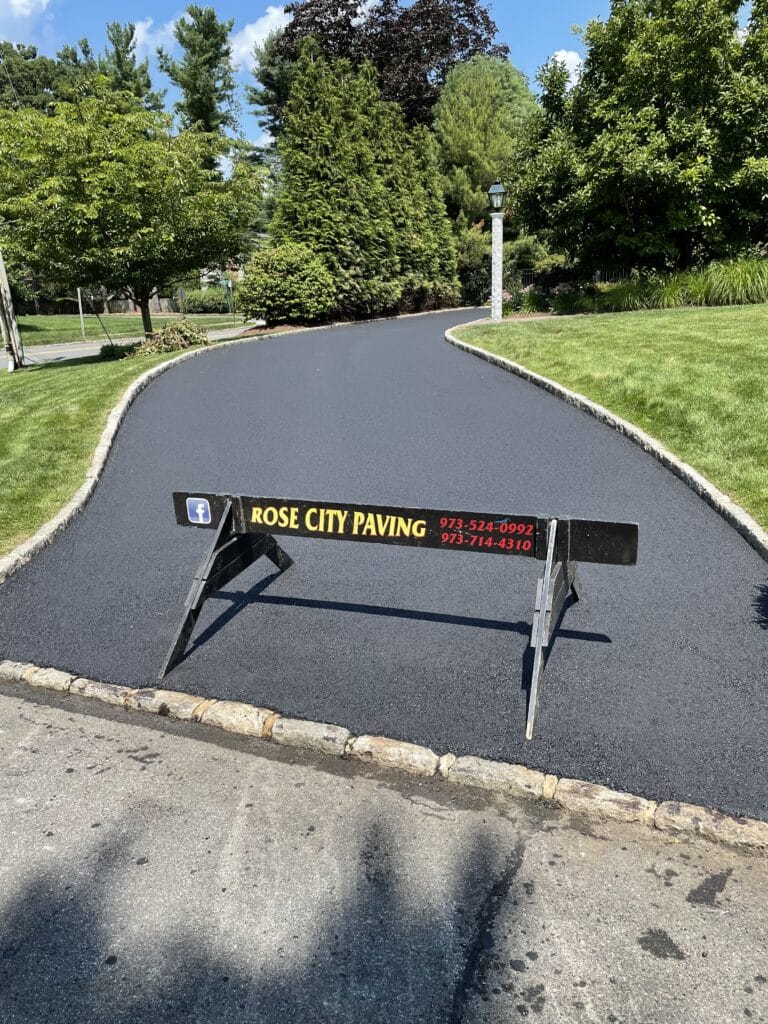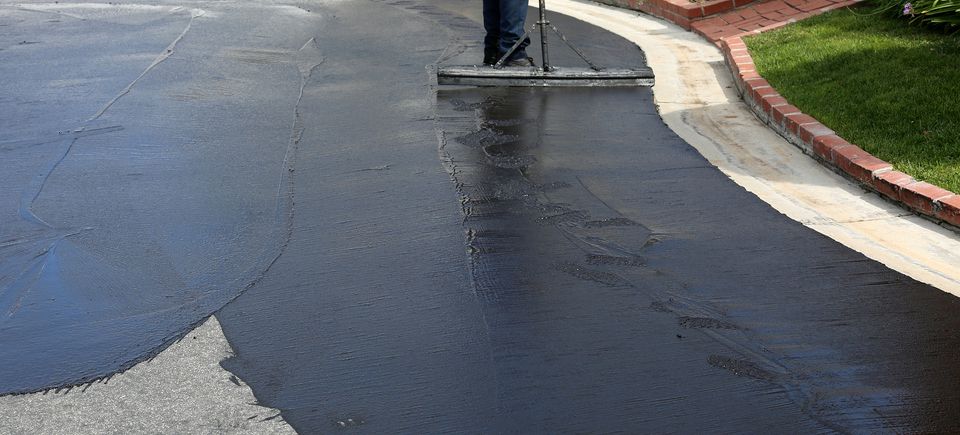Unleash the Prospective: Regrading and Asphalt Sealing for Business Spaces
Unleash the Prospective: Regrading and Asphalt Sealing for Business Spaces
Blog Article
Warm Mix Asphalt: A Lasting Remedy for Sidewalk
Warm Mix Asphalt (HMA) has emerged as a leading lasting selection for pavement remedies, using a myriad of innovative modern technologies and ecological benefits. As the demand for eco-friendly building methods expands, discovering the nuances of HMA's sustainability can offer valuable understandings right into the future of sidewalk options.
Ecological Benefits of Warm Mix Asphalt

Additionally, Hot Mix Asphalt assists to reduce metropolitan warmth island results. Its dark shade soaks up sunlight, reducing the amount of warm showed back into the ambience contrasted to lighter-colored sidewalks. This can decrease ambient temperature levels in urban areas, reducing the demand for air conditioning and eventually lowering energy usage.
Furthermore, Hot Mix Asphalt adds to improved stormwater monitoring. Its permeable nature permits water to infiltrate the sidewalk and recharge groundwater products, decreasing drainage and the danger of flooding. These environmental advantages make Hot Mix Asphalt a lasting selection for paving roads and freeways.
Power Efficiency in HMA Production
Is energy performance a vital aspect in the production of Hot Mix Asphalt (HMA)? Power plays a significant function in the manufacturing of HMA, influencing both price and ecological sustainability. One essential element of power efficiency in HMA manufacturing is the use of cozy mix asphalt (WMA) technologies.
Furthermore, developments in plant technologies have actually led to more energy-efficient HMA production processes. By maximizing energy usage in HMA production, the industry can minimize its carbon impact while maintaining top notch pavement materials.
Recyclability of Warm Mix Asphalt
The recyclability of Warm Mix Asphalt (HMA) is a pivotal facet of its sustainability and lasting ecological effect. HMA is among one of the most recycled products in the United States, with over 100 million lots of recovered asphalt pavement (RAP) being reused every year in new sidewalk building and construction. Reusing HMA provides a number of environmental advantages, such as minimizing the demand for virgin materials, lowering energy intake during production, and reducing the amount of waste sent out to garbage dumps.
The procedure of recycling HMA involves grating the existing pavement, squashing it right into smaller sized pieces, and mixing it with new aggregate and asphalt binder to develop a recycled mix. In general, the recyclability of HMA plays a substantial role in promoting sustainable methods within the sidewalk market.

Long-Term Efficiency of HMA
Asphalt sidewalks demonstrate sturdiness and strength over an extensive period, showing the long-lasting dig this performance of moved here Hot Mix Asphalt (HMA) Furthermore, innovations in HMA modern technology, such as the use of polymer-modified binders and warm mix asphalt, have actually further boosted the sturdiness and longevity of HMA sidewalks. By focusing on quality building and construction and upkeep methods, HMA proceeds to confirm itself as a lasting and cost-efficient service for long-lasting sidewalk infrastructure.

HMA: Longevity and Sustainability
Demonstrating both toughness and sustainability, Warm Mix Asphalt (HMA) has actually ended up being a keystone in the construction of resilient pavement infrastructures - hot mix asphalt. HMA's resilience comes from its capability to hold up against hefty lots, rough climate problems, and high traffic volumes, making it a trustworthy choice for highways, freeways, and airport terminal runways. The structure of HMA, which generally includes aggregates, binder, and filler, plays an essential role in improving its durability and resistance to tear and wear
Furthermore, HMA's sustainability depends on its recyclability and energy-efficient manufacturing procedure. The capability to reuse redeemed asphalt sidewalk (RAP) in brand-new HMA mixes reduces look at this web-site the demand for virgin materials and minimizes the environmental effect of pavement building and upkeep. Additionally, the power performance of creating HMA depends on its reduced mixing temperatures compared to other pavement products, resulting in reduced energy usage and greenhouse gas discharges.
Conclusion
In verdict, warm mix asphalt (HMA) provides a lasting service for sidewalk with its environmentally pleasant features. HMA's recyclability, energy performance in manufacturing, and lasting sturdiness make it an eco-friendly choice for road construction.
HMA is one of the most recycled products in the United States, with over 100 million heaps of reclaimed asphalt pavement (RAP) being recycled each year in brand-new sidewalk building and construction.The process of reusing HMA entails milling the existing sidewalk, crushing it into smaller pieces, and blending it with new aggregate and asphalt binder to produce a recycled mix.Asphalt pavements demonstrate toughness and resilience over an extended period, showing the lasting performance of Hot Mix Asphalt (HMA) Additionally, innovations in HMA technology, such as the usage of polymer-modified binders and cozy mix asphalt, have better boosted the resilience and durability of HMA pavements. The ability to reuse reclaimed asphalt sidewalk (RAP) in new HMA blends decreases the demand for virgin products and reduces the ecological impact of pavement construction and maintenance.
Report this page